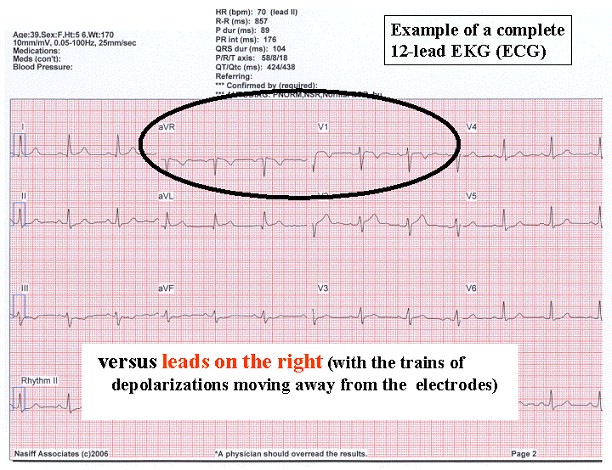How Effective Are EKGs?
Heart rhythm of the blood vessels in the lungs and other parts of the body have been determined by laboratory tests. Some of these tests were based on the theory that different patterns of rhythms had been assigned to different parts of the body. However, these theories proved to be wrong. These tests were also done based on the assumption that the rhythms are related to the functions of the heart and lungs and so, if they were related then one should learn how to control these functions. But this theory did not prove out to be accurate.
Then it became clear that there was no connection between sinus rhythms and heart or lung function. There was no connection between heart rate and blood rhythm in the arteries. These discoveries have led to a change in our understanding of the functions of the heart and lungs. So now we know that normal sinus rhythms have nothing to do with the function of the heart.
Heart rate and ECG training. Heart rate training exercises provide an ECG picture and users must determine which type of irregularity or sinus rhythm they are suffering from. Each answer is validated and the exact classification of the template is given along with a detailed description and explanation of the condition. Once proper classification has been made, treatment can begin.
ECG pictures show the electrical activity taking place in the arteries. The activity of one sinus differs from the activity of the other sinuses in the body. Thus, it helps us determine the cause of sinusitis symptoms.
Normal sinus rhythms are easy to recognize and are the same in all patients. This makes it easy to detect and treat sinus problems. Because normal rhythms are easy to diagnose, treatment is more effective.
These ECG samples can be used in a wide variety of tests. These tests include: in the doctor's office, on diagnostic x-rays, in the operating room, and in various laboratory tests. These tests can be used to determine if a patient has sinus problems or not.

The test is used to assess the pulse rate, blood pressure, pulse rate, and respiration. This helps to diagnose sinus problems correctly. Because these tests are easy to perform, they are used in a wide variety of settings.
An ECG is the only reliable test for diagnosing sinus problems. In addition to this, these tests also provide accurate information about the patient's health. EKGs are very helpful in determining the cause of sinus problems and in prescribing treatment.
Before EKG testing, the doctor checks the patient's general health condition by performing a physical examination, and taking a thorough medical history. He also makes a mental note of the patient's health status at the time of the test. A CT scan is also done to look for any abnormalities in the sinus lining. The results of these tests can help in finding the exact cause of the sinus problems.
EKGs are an effective and reliable test, but there are certain complications associated with the process of EKG testing. It is important to follow the proper EKG guidelines, while undergoing EKG testing. Failure to do so may lead to some complications and may affect the quality and results of the test. The doctor may require a few tests to find out the exact cause of the sinus problems. He may have to repeat the test in case of any discrepancies.
Patients should also practice proper hygiene while performing the EKG tests. They should avoid smoking, as this may affect the test. They should also avoid using antibiotics or any antibiotic drugs before the test. The use of any medications that contain ibuprofen or aspirin should also be avoided.
EKG testing can prove useful in diagnosing several conditions like sinusitis, tuberculosis and bronchitis. It is also very useful in monitoring the patient's health status to detect the symptoms of sinus problems and can help in preventing them.